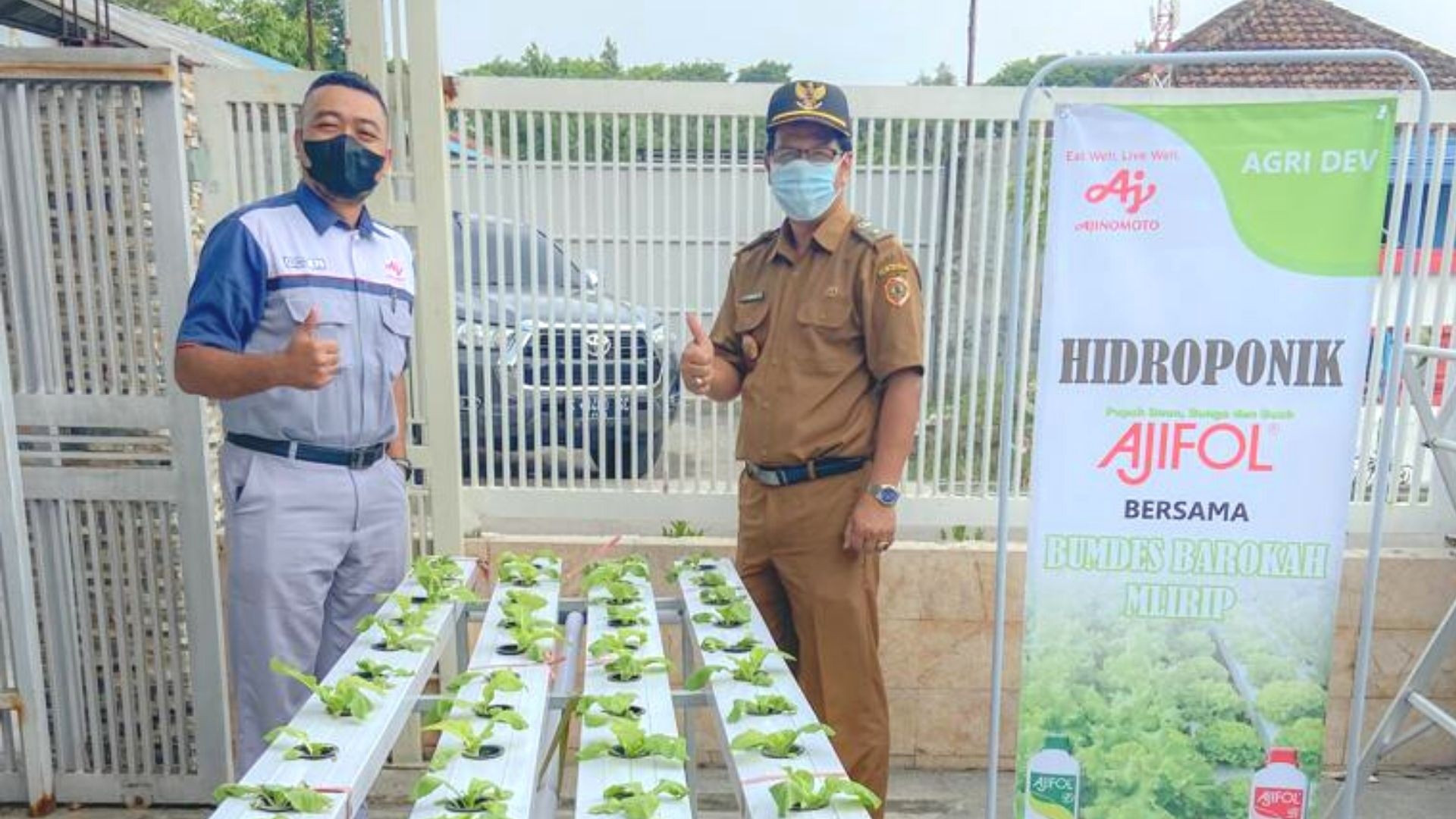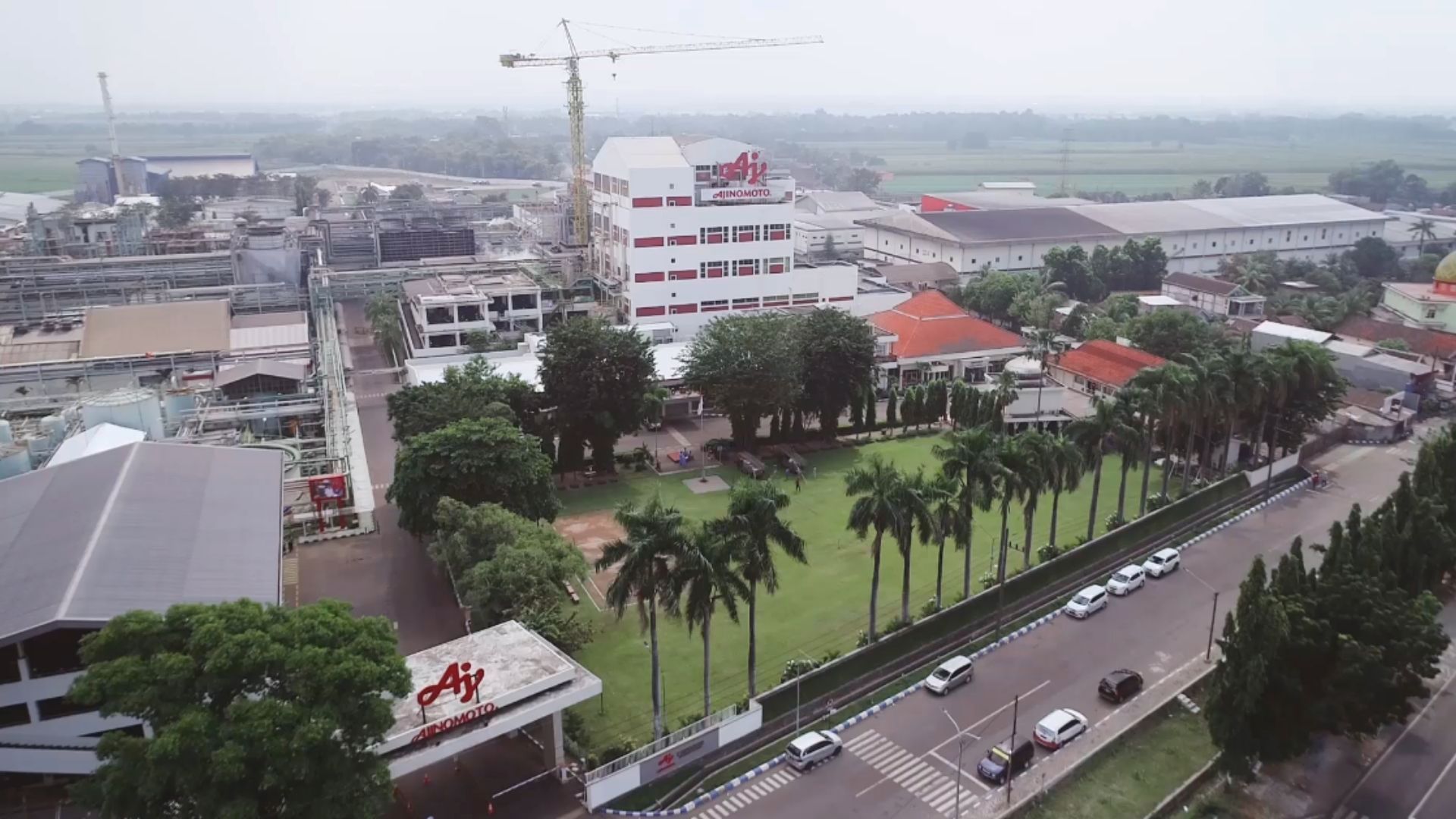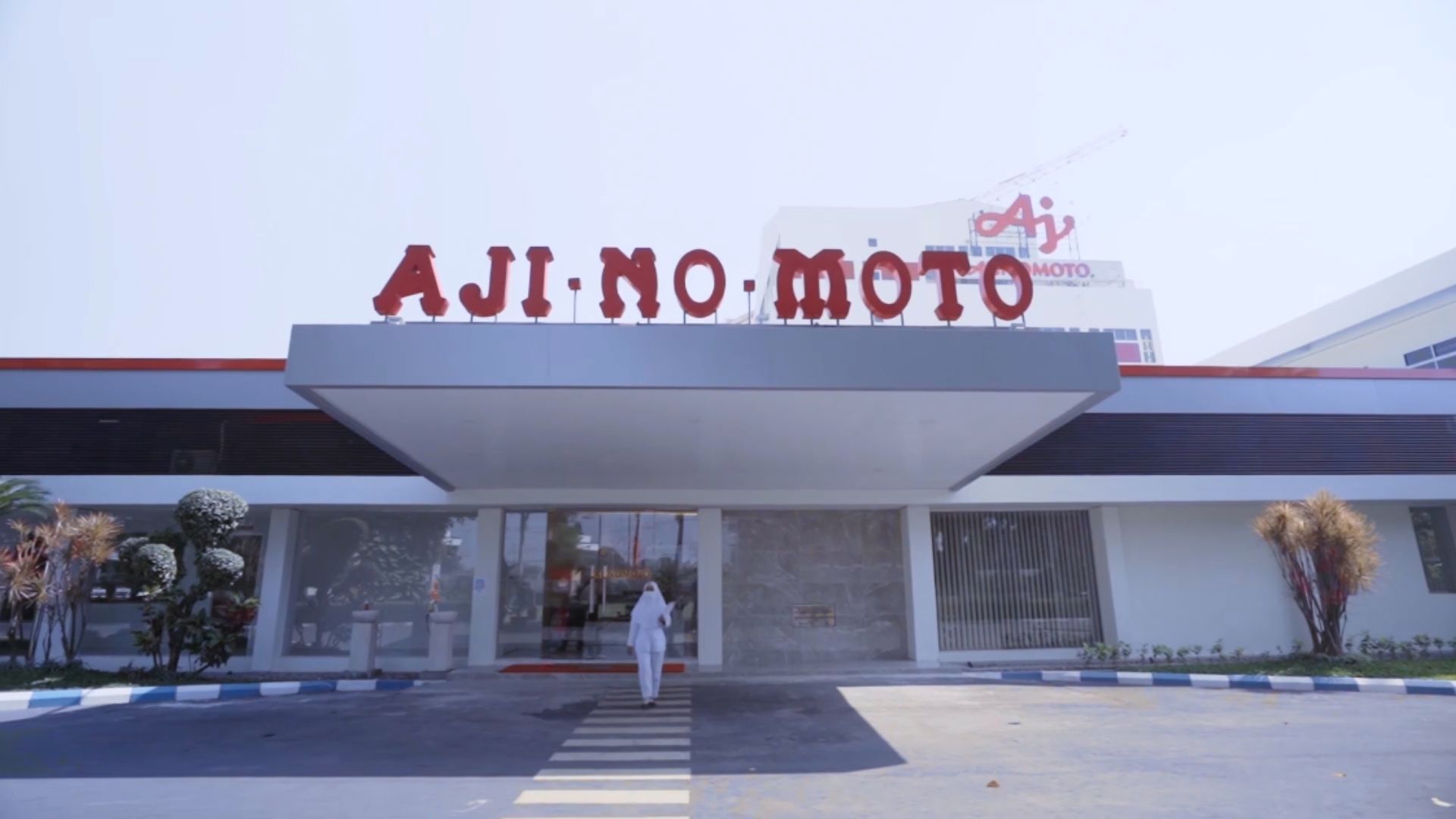Jakarta, July 4, 2022 – Tracing history, the birth of Ajinomoto was initiated by a Japanese scientist named Kikunae Ikeda. More than a century ago Ikeda discovered the taste of umami. The main component of the umami taste is glutamic acid which is an amino acid. The discovery led to the compounding of Ajinomoto's umami spice to enhance the delicacy of foods from Japanese seaweed extract. “Creating delicious spices at affordable prices and turning simple but nutritious foods into delicious food” – this is Dr. Ikeda's dream which has spread throughout the world to Indonesia. Entering the age of 53 years, PT AJINOMOTO INDONESIA (Ajinomoto) is further strengthening its commitment to increasing the healthy life expectancy of Indonesian families.
“Present in Indonesia since July 1969, Ajinomoto Indonesia Group adheres to the Ajinomoto Share Value (ASV) which focuses on the pillars of health and welfare, food resources, and global sustainability. Ajinomoto continues to contribute to better health for Indonesian families, by unlocking the power of amino acids to address dietary and health problems related to dietary habits and aging by contributing to improvements in diet, health, and healthier life. Through its global slogan Eat Well, Live Well, Ajinomoto continues to make a major contribution to improving the quality of life of the Indonesian people, as well as moving towards a sustainable and environmentally friendly business," said Shinichi Matsumoto - President Director of PT AJINOMOTO INDONESIA
Ajinomoto consistently practices a circular economy to create an environmentally friendly production process. The concept of a circular economy is related to one of the policies rolled out by the Ministry of Industry, namely the green industry. The implementation of the green industry seeks efficiency and effectiveness in the use of resources sustainably to be able to harmonize industrial development with the preservation of environmental functions and can provide benefits to the community to be able to harmonize industrial development with the preservation of environmental functions and can provide benefits to the community. The development of a circular economy brings opportunities for several industrial sectors in Indonesia, including Ajinomoto.

Ajinomoto practices a circular economy while maintaining and improving production efficiency from upstream to downstream in the existing production process. Upstream, with its technology, Ajinomoto suppresses the use of raw materials to increase productivity. In this process, until it reaches its downstream, Ajinomoto produces co-products or by-products that have a selling value and can be applied in agriculture. In addition to processing liquid by-products from MSG production, Ajinomoto's Agriculture Development (Agri Dev) Department also processes solid by-products into GCC Mix soil improver, TRITAN animal feed material, and several other co-products that also have selling value.
The Ajinomoto factory in Mojokerto has also made various efforts to achieve Zero Waste, which is an effort to minimize and reduce environmental pollution to zero. Various efforts have been made by Ajinomoto, such as reducing carbon emissions, reducing water consumption, and implementing Bio-Cycle & Eco-Activity which produces co-products such as AJIFOL Fertilizer, AMINA, and FML animal feed raw materials. When channeled into the Brantas River the quality of the water becomes better and cleaner.
Matsumoto also explained Ajinomoto's efforts in water conservation activities, "We are also committed to supporting environmental conservation by reducing water use by 31%, from the 2016 based line, by making savings through water quality improvement (water treatment) in production activities. Our commitment is also a form of Ajinomoto's participation in the success of the Indonesian Government's environmental conservation program and is in line with Ajinomoto Co., Inc's (Japan) aspiration to help reduce environmental impacts by up to 50%. Our step is also aimed at maintaining the availability of water on a regional scale so that it can help overcome limited water resources due to increased water consumption.”
Ajinomoto is actively working on reduce, reuse, recovery, and recycle activities for water use in every activity. Even by reducing water use by up to 31%, the ability to produce MSG and other seasonings is not compromised and can still be increased. For better air, Ajinomoto participates in reducing the level of carbon emissions in Indonesia by reducing 38,500 tons of CO2 (carbon emissions) by reducing fuel consumption for all transportation at work and cutting the use of electricity. As we know, carbon emission is one of the contributors to air pollution which harms human health and the environment.
The health of the surrounding environment is an important concern because the quality of human life is very dependent on how clean the surrounding ecosystem is. The amount of plastic waste that has been piling up from year to year has become a problem that must be resolved by various parties. In light of this problem, Ajinomoto Indonesia also took concrete steps. Various efforts to reduce plastic materials have been carried out by Ajinomoto, for example, one of Ajinomoto Indonesia's products - Sajiku, which is closely related to the daily life of Indonesian families, contributes to overcoming the problem of plastic waste accumulation by reducing up to 9.5% the use of plastic materials in each packaging. Another Ajinomoto product – Masako has also reduced the use of plastic in the header. In addition, Ajinomoto also launched the AJI-NO-MOTO® MSG product which uses paper packaging. This innovation of AJI-NO-MOTO® Paper Packaging can reduce the use of plastic materials by up to 30%.
Ajinomoto Initiation in Health
For Ajinomoto, good nutrition is a big highlight. Good nutrition is an important capital for the growth of future generations. “Indonesian children need good and complete nutrition to grow. With complete nutrition, the mental and physical development of Indonesian children will improve, so that they can grow into a strong nation. The School Lunch Program (SLP) is one of Ajinomoto's initiatives to prevent malnutrition in children. We collaborated with the Bogor Agricultural Institute (IPB) and held the SLP program which we carried out in the Islamic boarding schools that received the program. Through this program, we got positive results with the improvement of the nutrition of the students. It doesn't stop there, we also work closely with the Dept. Community Nutrition of IPB & Ministry of Religion of the Republic of Indonesia to present the SLP guidebook which contains nutrition education, program implementation tips, and various applications of a balanced nutritious delicious menu," said Matsumoto.
At the beginning of the program, SLP chose 6 Islamic boarding schools as a pilot project which was later developed and targeted to become 12 Islamic boarding schools. The SLP program run by Ajinomoto succeeded in reducing 8% of the incidence of anemia among the students of the Darul Falah Agricultural Islamic Boarding School in Bogor and 20.9% in the Darussalam Islamic Boarding School in Bogor. Starting from this success story, Ajinomoto is committed to continuing to contribute to overcoming child nutrition problems in Indonesia.

Supporting this program, together with the Indonesian Ministry of Religion, Ajinomoto also compiled 3 guidebooks. The first book contains a nutrition education module in Islamic boarding schools which is useful for providing teaching staff with basic knowledge about nutrition and health for children and adolescents. The second book contains a module for providing balanced nutritious meals in Islamic boarding schools. The third book contains a collection of recipes and application options for a delicious, balanced, nutritious menu.
Ajinomoto Indonesia also consistently holds a series of health webinars on the topic of health and the use of MSG in fulfilling nutrition. Ajinomoto continues to disseminate informative facts about MSG that can be used as a flavoring agent to create a menu of healthy, nutritionally balanced, and delicious food. Furthermore, MSG also plays a role as a way to control the salt intake and continue to increase nutritional intake to increase the life expectancy of the Indonesian people.
Consistently Holding Halal Assurance System
Ajinomoto is committed to continuing to be consistent in implementing the Halal Assurance System (HAS) in all its factories, this is proven by Ajinomoto successfully maintaining the A predicate and winning the "HAS Award 2021" which held on May 31, 2021, by LPPOM MUI. This award is very meaningful for the progress of PT AJINOMOTO INDONESIA's Halal Management and provides motivation and pride for the company to continue to meet the needs and expectations of the community and customers as a top priority.

“We always support Indonesian families to create joy in cooking and eating together, which can also increase family closeness and increase enthusiasm for tomorrow. The application of amino acids which is our main focus can help create delicious food, support growth, development, recovery and support the physical health of Indonesian people. Through this, we believe that Indonesian families can grow up happy, healthy and will become a strong nation. We hope that all Indonesian families live healthy and happy lives, eat well & live well”, concluded Matsumoto at the end of the conversation.